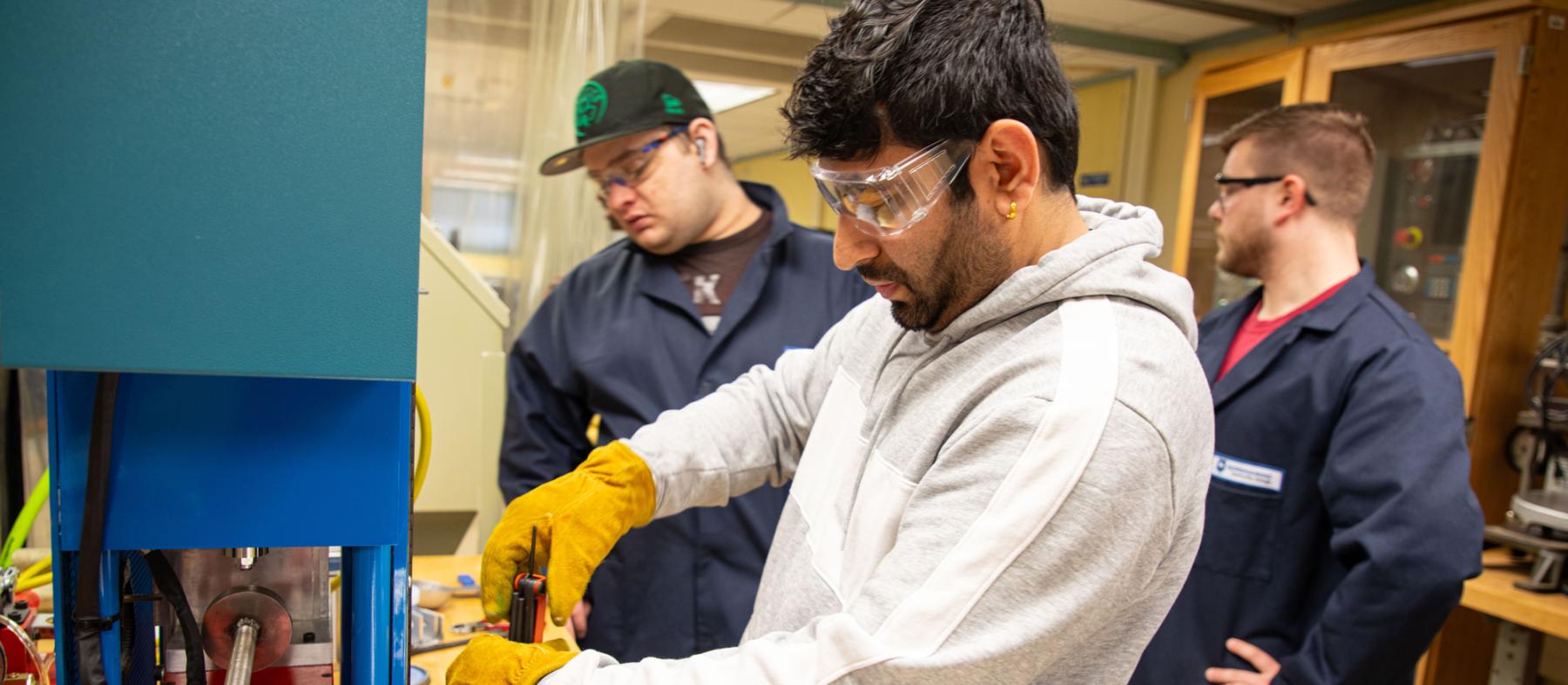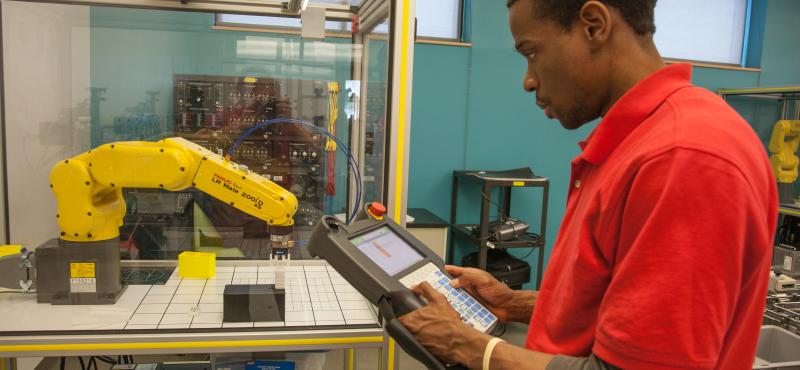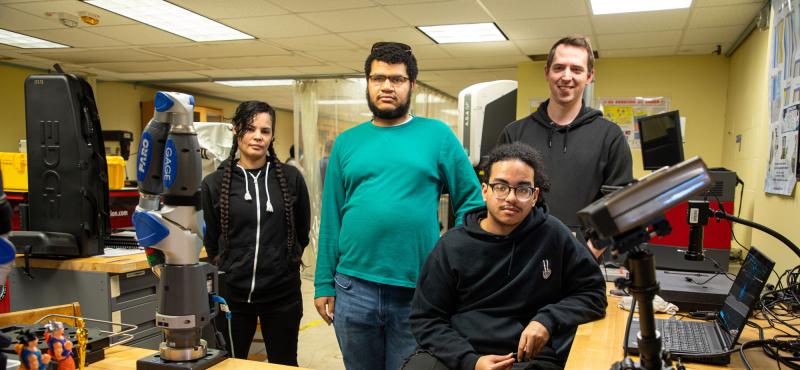Program Goals:
The Manufacturing Technology - Quality Control Option associate degree program will focus on quality control (QC) and operations positions to enhance the graduate’s capability in this role. The program is designed to provide a blend of mathematical, computer, and hands-on skills required in the industry while providing an opportunity for continuing education through transfer to four-year schools.
Student Learning Outcomes:
Upon completion of the program, graduates will be able to:
- Define general terminology, concepts, and skills used in quality control (QC).
- Use a variety of precision instruments to determine product acceptance and/or performance.
- Interpret and compare data with respect to statistics and quality control.
- Apply knowledge of inspection techniques and mathematics to solve quality control problems.
- Demonstrate an ability to use computational methods for statistical process control (SPC) and data management.
- Categorize quality control definitions and identify appropriate standards.
- Maintain and troubleshoot quality control standards to support production compliance.
- Work in teams to discuss and articulate theories.
- Research relevant information for verbal and written concept proposals.
Admissions Process:
Admissions inquiries should be directed to admissions@qcc.mass.edu. Prospective students may apply to the program of their choice by following the enrollment steps at www.QCC.edu/enrollment-steps.
Program Admissions Requirements:
Students should note that some first semester courses carry minimum prerequisites. Refer to the program grid.
- High School Diploma or GED/HiSET.
- Must be able to lift 50lbs.
- Must have stable muscle control.
CORI, SORI, Finger Printing & Drug Testing:
Criminal Offender Record Information (CORI) and Sex Offender Registry Information (SORI) checks are not required. Fingerprinting and drug testing are not required.
- CORI/SORI checks, fingerprinting, and drug testing may be required of students enrolled in MNT 299.
Additional Cost:
See the Program Fees page.
- Graduates may be required to meet at off-campus locations and are expected to provide their own transportation to these venues. Types of venues used vary each semester, but may include company tours outside of class and/or training at other local educational facilities.
- Students should anticipate additional expenses for professional certification examinations.
Technical Performance Standards:
See the Technical Performance Standards page. (Note: Not all programs have technical performance standards).
Credit for Prior Learning:
Credit for Prior Learning (CPL) allows students to use skills they already have towards a college degree or certificate. Work, life, volunteer and military experience may be translated into credit, allowing students to take fewer classes and earn their degree faster. CPL eliminates redundancies for students who have already earned credentials or mastered skills required for their program of study. Email experience@qcc.mass.edu for more information and eligibility.
- To evaluate technical prior learning credit, students should contact the Center for Career & Transfer Services.
Career Outlook:
Please consult the Massachusetts Career Information System at https://masscis.intocareers.org/ or the Occupational Outlook Handbook at www.bls.gov/ooh/ for specific occupational information. The CIP code for this program is 15.0702.
Transfer Articulations & Opportunities:
Prospective students may learn more about transfer articulation agreements at www.QCC.edu/agreements. More information regarding transfer opportunities is available at www.QCC.edu/transfer.
Additional Information:
- The courses in this program are aligned with national standards as set by National Association of Manufacturers (NAM) and Manufacturing Skills Standards Council (MSSC).
- During the course of this program, students will be required to take industry prescribed certifications. See program grid for details.
Certifications:




